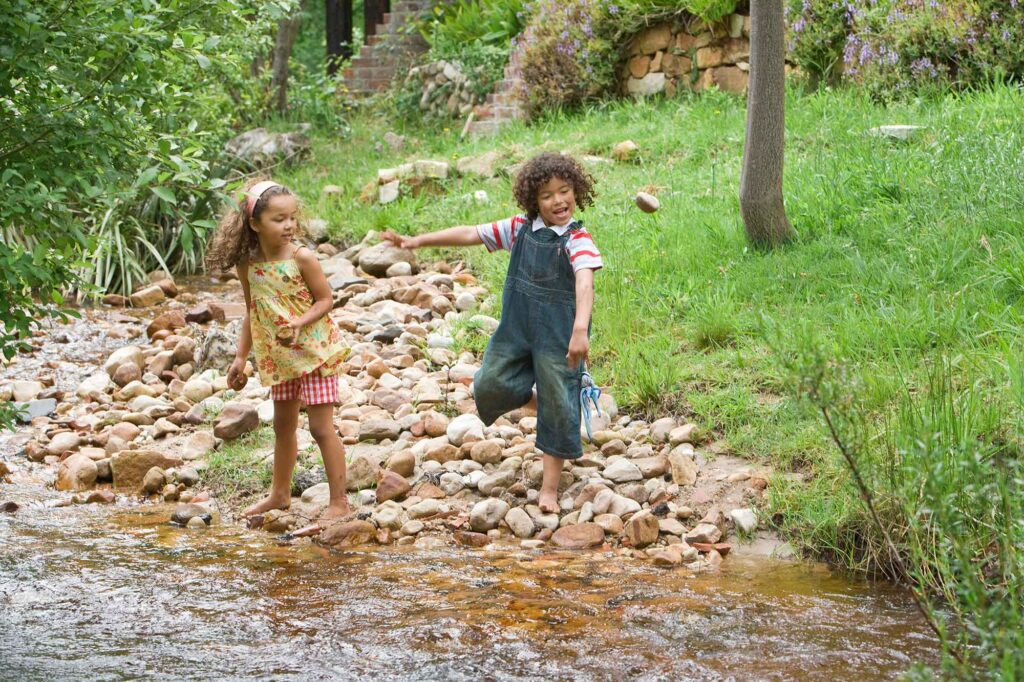Who Was Charlotte Mason? And How Is CM Relevant to Modern Homeschoolers?

So, who was Charlotte Mason, and why are so many homeschoolers still talking about her today?
Charlotte Mason was a British educator who lived in the late 1800s and early 1900s—a time when education was mostly reserved for the elite. Back then, kids from working-class families were typically given just enough schooling to get by, focusing on basic skills for jobs and not much else. But Charlotte Mason had a different vision. She believed in what she called “a liberal education for all,” meaning that every child, regardless of background, deserved an education that nurtured their mind, body, and spirit. To her, learning wasn’t just about memorizing facts or following rigid schedules; it was about cultivating a child’s whole self.
Her ideas were pretty groundbreaking at the time, and they have made a comeback in today’s homeschooling world—for good reason! Modern education can often feel like a race to hit benchmarks and score high on tests, leaving both kids and moms feeling overwhelmed and drained. In contrast, Charlotte Mason’s philosophy brings a breath of fresh air. It reminds us that education is more than checking off boxes—it’s about developing wisdom, building character, and cultivating a genuine love for learning.
That’s why so many moms today are drawn to Mason’s approach. It offers a gentle, thoughtful alternative to the mainstream, appealing to those who want to slow down, dig deeper, and focus on what truly matters. In a world that’s always rushing and pushing for more, Charlotte Mason’s teachings resonate with the desire to create a meaningful, balanced educational experience for our children.
I first came across Charlotte Mason’s ideas about 7 or 8 years ago, while we were involved in a classical education coop in our area. Her emphasis on a child’s personhood, the power of living books, the value of good habits, and the atmosphere of the home caught my attention. As I started reading and learning, I realized her methods weren’t at complete odds with the classical model, and so I tried to incorporate her ideas as much as possible into our homeschool.
While Mason wouldn’t have considered herself a classical educator, her philosophy shares the same pursuit of truth, goodness, and beauty. She admired thinkers like Plato and Augustine but charted her own path. Instead of emphasizing heavy memorization and rigid structures (common in the classical “grammar phase”), she prioritized engaging literature, nature study, the arts, and habit formation—creating an education that nurtures the whole child without overwhelm.
Her focus on short lessons, exploration, and beauty doesn’t mean her approach lacked rigor. Mason believed in “spreading a feast” of truth, beauty, and goodness, inviting children to engage deeply with a wide range of ideas. It’s an education that challenges the mind and nurtures the soul—rich and meaningful without being burdensome.
Charlotte Mason’s Core Principles
1. “Education Is an Atmosphere, a Discipline, a Life.” – Charlotte Mason
This overarching principle sums up Mason’s educational philosophy beautifully.
- Education is an Atmosphere: Our home environment plays a vital role in shaping our children’s learning. Mason believed children absorb ideas and values simply by being in a home filled with love, respect, and curiosity.
- Education is a Discipline: The habits we cultivate—both in ourselves and our children—lay the foundation for lifelong learning. Habit training is key to developing character and responsibility.
- Education is a Life: Education should not be a dry collection of facts but a rich, living stream of ideas that feed the soul and stimulate the mind.
2. The Role of Living Books
Charlotte Mason detested the dull, “twaddle” textbooks of her day. Instead, she championed the use of living books– which was literature written by authors who were passionate about their subjects. Living books draw readers in, stirring both the heart and the mind, and do not read like a dry textbook, but an engaging story or conversation. “Twaddle” books of today can also refer to mass produced modern books that do not have rich storylines, lack depth, and have cursory computer generated illustrations.
In our home, I have found that living books inspire curiosity in a way no workbook ever could. Whether it’s historical biographies, beautifully written nature guides, or classic literature, these books make learning feel like an adventure.
There are so many wonderful living books (some very old!) that we should not waste our time on cheap “twaddle.”
3. The Child Is a Person
Mason emphasized the intrinsic value of every child, seeing them as whole, capable individuals made in the image of God. To her, children weren’t empty vessels to be filled but unique souls to be nurtured. This view reshaped how education was approached—shifting from control and rote instruction to respect and partnership. While this idea might feel obvious to us today, it was countercultural during her time. In the late 19th and early 20th centuries, children—particularly those from poor families—were often undervalued, seen as burdens, or treated primarily as laborers rather than treasured individuals.
4. The Habit of Attention
In a world filled with distractions (NOW MORE THAN EVER!), helping our kids develop the habit of attention is vital. Mason believed in gently training children to focus their minds on one task at a time, fully engaging with the material before them.
5. Short Lessons and Mastery
Mason’s method of short, focused lessons helps children maintain attention while fostering mastery. Instead of slogging through endless worksheets, children spend concentrated time on subjects, allowing them to give their best effort without fatigue. This approach is especially helpful in younger grades when attention spans are still developing.
An example of this would be for a young child who is learning handwriting to complete 1 single row of their absolute best letter “A’”, and then move on to something else, rather than complete page after page of “A’s” that start out looking decent, and get worse as their hand gets tired.
6. The Importance of Nature Study
Mason believed nature study was an essential part of a child’s education. She saw God’s creation as a living classroom, where children could observe, explore, and develop a sense of wonder. Nature study isn’t just about science—it’s about connecting with the Creator and appreciating His handiwork.
Even a simple walk outside can be a rich learning experience when we take time to notice the intricate details of a leaf, the song of a bird, or the patterns in the sky.
7. Narration as a Learning Tool
Narration, the practice of retelling what one has learned, is central to Mason’s philosophy. Whether it’s an oral summary of a story or a written account of a historical event, narration helps children process and articulate their thoughts. It develops comprehension, memory, and communication skills—without the need for endless quizzes or tests.
Practical Applications in Our Eclectic Homeschool
Creating a Charlotte Mason Atmosphere
In our home, we strive to cultivate an environment that inspires learning. That doesn’t mean we have a perfectly curated homeschool room (far from it!), but we do prioritize having books, art supplies, and nature journals readily available. I’ve also found that the tone we set as parents—being patient, curious, and joyful—greatly influences the “atmosphere” of our homeschool.
Incorporating Living Books
Building a library of living books has been one of the most rewarding parts of our homeschool journey. From The Burgess Bird Book for Children to Little House on the Prairie, we’ve discovered stories that ignite the imagination and deepen understanding. For those on a budget, library sales, thrift stores, and online resources can be treasure troves for finding quality literature.
Fostering Habits and Character Development
Another practical way we apply Mason’s philosophy is through habit training. We focus on one habit at a time, such as diligence or kindness, and work on it consistently. This isn’t about perfection but about progress—helping our children (and ourselves!) grow in character a little each day.
Making Nature Study Work for You
Nature study doesn’t have to be complicated. Whether it’s a backyard bug hunt or a visit to a local park, there are many ways to incorporate nature study into your homeschool routine. We have also been blessed to have homeschool friends to meet up with for nature walks and lessons over the years, with moms taking turns leading a lesson, and then exploring nature together. Sometimes we keep a nature journal to document our findings, and sometimes we don’t! The point is to get out in nature in whatever capacity you can, and experience and enjoy God’s creation together.
The Art of Narration in Modern Homeschooling
Narration is such a simple yet powerful tool. After spending time reading aloud together (from a living book!), have your kids take turns “telling back” or narrating what stood out to them. Younger kids can just do this orally, have discussions after you read. Start with the youngest kid so they have something to say, then let the older kids go deeper in their observations. As a child gets older, their “narrations” will turn into more formal written narrations, which can be the groundwork for more formal written compositions. Kids can even act out their narrations, and many times will do this even during free play, unplanned or prompted by a parent. The key is flexibility—adapting this practice to fit each child’s age, learning style, and interests.
Adapting Short Lessons for Modern Curriculums
Even though we use a mix of curriculums, the principle of short lessons helps us avoid burnout. Ideally, it is best to keep lessons for younger kids (K-2nd) to 15-20 minutes, gradually increasing as they grow. This approach helps maintain their enthusiasm and ensures they’re truly engaged during learning time. This allows for engaged and focused work on one subject, then follow that with a CHANGE – could be a different subject, a chore, or a jump on the trampoline break.
Encouragement for Moms
Homeschooling is a journey, not a race. It’s easy to feel overwhelmed when trying to implement new ideas, but remember: progress, not perfection. Start small, give yourself grace, and trust that God will guide you in this beautiful calling.
How to Start Small
If you’re new to Charlotte Mason’s philosophy, start with one or two principles that resonate most. Maybe you begin by incorporating living books or taking a weekly nature walk. Over time, these small steps can transform your homeschool in meaningful ways.
Conclusion
Embracing many of Charlotte Mason’s principles has brought joy and depth to our homeschool. It’s not about following her method perfectly but about weaving her wisdom into the fabric of our daily life. Her timeless ideas remind us that education is ultimately about shaping the heart, mind, and soul of our children.
So whether you’re just beginning your homeschooling journey or looking to refresh your current approach, I encourage you to explore Charlotte Mason’s philosophy. You might just find, as I did, that her principles are the perfect blend of inspiration and practicality for your homeschool.
Resources for Further Study
- Books:
- Charlotte Mason Curriculums:
- Tools: Nature journals, favorite living book lists, narration guides
